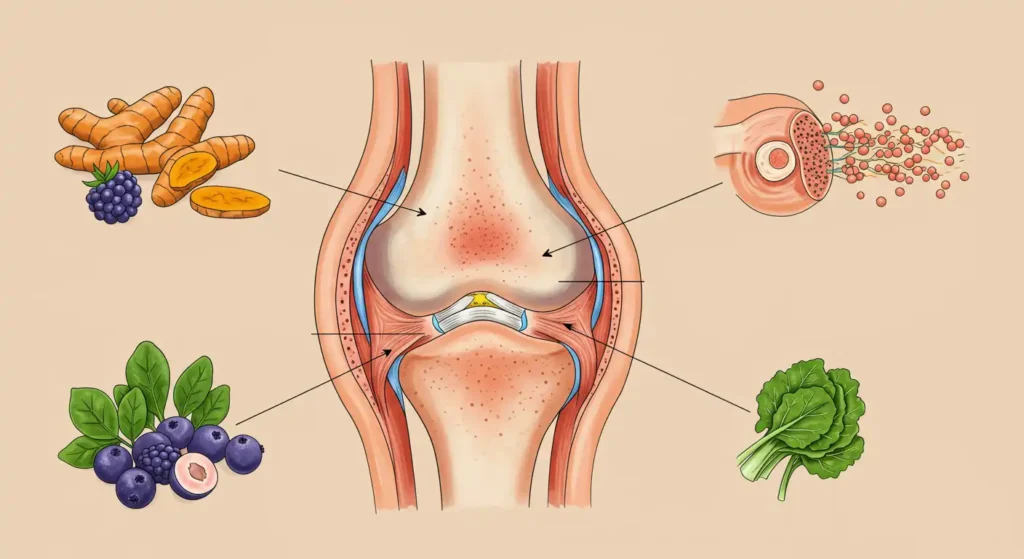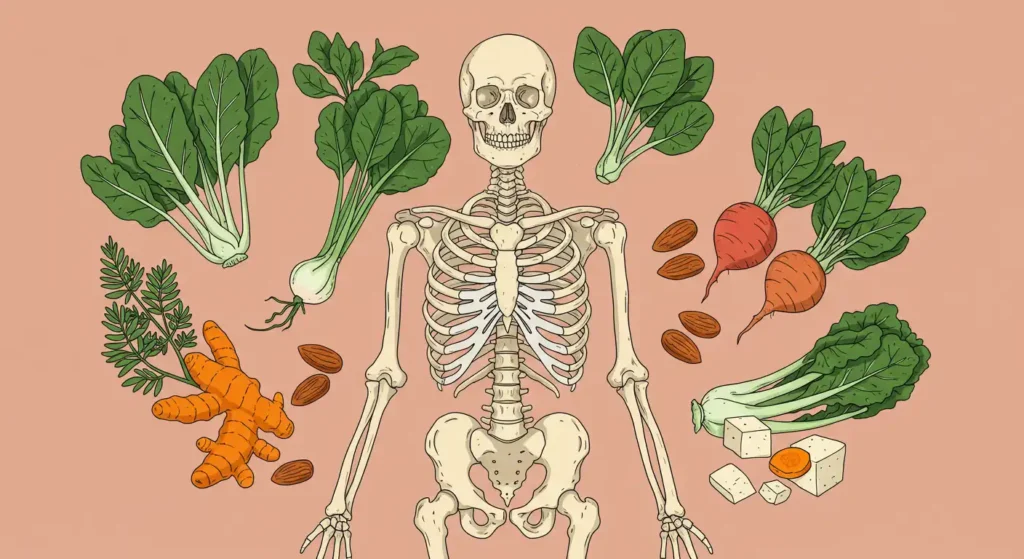The Rise of Plant Based Collagen
With the growing interest in natural wellness and sustainable living, plant based collagen has become a buzzword in the health and beauty world. Unlike traditional animal-derived collagen, these vegan alternatives aim to stimulate your body’s own collagen production using nutrient-rich botanical sources. Whether you’re battling fine lines or aching joints, plant based collagen boosters offer a natural path to vibrant skin and lasting joint health. More consumers are now reading labels and leaning toward ethical, cruelty-free products that support internal health as well as external beauty.
Importantly, collagen is the most abundant protein in the human body, and it’s crucial for maintaining the structure of skin, joints, bones, and connective tissues. However, as we age or as we face chronic inflammation from autoimmune diseases like rheumatoid arthritis collagen production slows down. This can lead to sagging skin, weakened joints, and brittle bones. Fortunately, modern nutrition science shows that we can support this process naturally using plant-powered ingredients. Let’s explore the most effective plant based collagen boosters and their impact on your health.
Plant Based Collagen and Joint Health: A Natural Approach to Mobility

Maintaining joint health is crucial for an active, pain-free lifestyle. Consequently, as we age, our natural collagen levels decrease, impacting cartilage integrity and joint flexibility. This is particularly concerning for individuals dealing with rheumatoid arthritis or other forms of inflammatory arthritis.
How Plant Based Collagen Works for Your Joints
Interestingly, plant based collagen doesn’t contain collagen itself. Instead, it provides the essential nutrients and co-factors that help your body synthesize its own collagen. Ingredients like:
- Vitamin C (found in acerola cherry and citrus fruits)
- Silica (from bamboo or horsetail)
- Zinc and Copper (in seeds and whole grains)
- Amino acids like glycine and proline (present in soy, legumes, and nuts)
Notably, these promote natural collagen production, supporting joint flexibility and reducing inflammation. Silica, for example, plays a key role in building strong connective tissue, while Vitamin C is essential for hydroxylation, a process needed to form stable collagen structures. A deficiency in any of these nutrients can slow collagen synthesis and exacerbate joint pain.
Additionally, transitioning to a plant based collagen routine has another perk: the anti-inflammatory benefits from polyphenols, flavonoids, and antioxidants naturally found in plant foods. Moreover, these compounds combat free radicals and oxidative stress, which are significant contributors to cartilage breakdown.
Why Vegans and Vegetarians Need Collagen Support
Because traditional collagen comes from animal tissues, plant-based eaters are often left searching for alternatives. A high-quality vegan collagen booster can fill that gap naturally. Vegans are particularly at risk of low glycine and proline intake two amino acids critical to collagen formation. To compensate, vegan-friendly foods such as lentils, pumpkin seeds, and quinoa should be staples. Additionally, adding targeted supplements made with algae, bamboo extract, and acerola can help bridge the gap.
What the Research Says
According to a 2022 study published in Nutrients (source), certain botanical compounds like polyphenols and flavonoids have anti-inflammatory properties that may benefit those with rheumatoid arthritis. Furthermore, plant-based diets rich in antioxidants are linked with reduced disease progression in inflammatory conditions. Importantly, researchers highlight the role of diet in managing inflammation and preserving cartilage integrity a hopeful direction for millions suffering from joint disorders.
Lifestyle Tips
- Adopt a colorful diet rich in plant-based nutrients
- Stay active with low-impact movement (e.g., yoga, swimming)
- Use turmeric and ginger in daily cooking
- Avoid processed sugars that break down collagen
Anti-Aging Benefits of Plant Based Collagen

In fact, everyone wants to age gracefully. Plant based collagen boosters support skin elasticity, hydration, and firmness, making them a key part of your anti-aging routine.
The Connection Between Collagen and Skin Elasticity
Fundamentally, collagen is essential for maintaining youthful skin. A decline in collagen leads to wrinkles, sagging, and dryness. While animal collagen supplements may provide a direct source, they aren’t ideal for everyone. Plant based boosters work by:
- Protecting existing collagen from oxidative stress
- Enhancing fibroblast activity (the cells that produce collagen)
- Providing hydrating nutrients like hyaluronic acid from natural sources
Furthermore, vitamin C, flavonoids, and minerals like manganese help maintain the skin’s dermal structure and delay the appearance of fine lines. Botanical extracts such as rosehip, hibiscus, and sea buckthorn are also celebrated for their skin-repairing and rejuvenating effects.
Powerful Plant Based Ingredients for Skin
- Aloe Vera: Helps skin retain moisture, promotes healing
- Sea Buckthorn: Rich in omega-7 and antioxidants, supports elasticity
- Gotu Kola: Enhances collagen synthesis and circulation
- Schisandra Berry: Improves resilience to stress and enhances glow
When consumed consistently, these ingredients support skin resilience from the inside out. Many skincare products now incorporate these botanicals to hydrate and protect the skin barrier, while supplements provide deeper systemic support.
A Natural Beauty Routine That Works
Building a skin-supporting routine includes:
- Drinking plenty of water
- Taking vegan collagen boosters daily
- Eating vitamin-rich foods like bell peppers and kiwi
- Avoiding UV overexposure and pollution
The Role of Plant Based Collagen in Bone Support and Inflammatory Arthritis

Bones, like skin and joints, rely heavily on collagen for structural integrity. In fact, collagen accounts for nearly one-third of the protein composition of bone tissue. Consequently, without adequate collagen, bones become fragile and more susceptible to fractures and osteoporosis. This issue is magnified for individuals suffering from inflammatory arthritis conditions such as rheumatoid arthritis, where systemic inflammation weakens the collagen matrix and accelerates bone degradation.
How Plant Based Nutrients Reinforce Bone Matrix
Unlike traditional bone support supplements that rely on animal-based collagen or calcium sources, plant based collagen boosters offer a more holistic and sustainable alternative. Essentially, they work by providing the nutrients necessary for the body to synthesize its own collagen and reinforce bone density.
Key nutrients include:
- Lysine (found in tofu, legumes, spirulina): essential for calcium absorption and collagen formation.
- Magnesium (from leafy greens, seeds): critical for bone remodeling and reducing inflammation.
- Vitamin D2 (from mushrooms, fortified plant milks): enhances calcium absorption.
- Boron and Silica (from prunes, almonds, bamboo): support bone mineralization and connective tissue strength.
Integrating these nutrients into your diet strengthens not just the collagen matrix of bones, but also the connective tissues surrounding them. This is crucial for joint mobility and posture, particularly in aging populations.
Fighting Inflammation for Better Bone Health
Chronic inflammation is a major cause of collagen degradation and bone thinning. In fact, in inflammatory arthritis, the immune system mistakenly attacks joint tissues, releasing enzymes that break down collagen and cartilage. Consequently, this leads to joint deformities and compromised bone health over time.
Effectively, incorporating plant based collagen boosters rich in anti-inflammatory nutrients like turmeric (curcumin), green tea extract, and omega-3 fatty acids from flaxseeds can help calm these flare-ups. Specifically, these compounds regulate cytokine production, reduce oxidative stress, and create a more favorable environment for bone maintenance.
A study published by the National Institutes of Health (source) in 2021 found that polyphenols from plant sources significantly reduced bone loss in inflammatory conditions by preserving collagen and reducing osteoclast activity.
Everyday Practices for Stronger Bones
- Engage in weight-bearing exercise like hiking or resistance training.
- Avoid processed and acidic foods that leach calcium from bones.
- Prioritize calcium-rich vegan sources like sesame seeds, bok choy, and fortified plant milks.
- Supplement as needed with a comprehensive vegan bone support formula.
Choosing the Best Vegan Collagen and Joint Supplements

As the market for wellness products continues to grow, consumers are bombarded with hundreds of joint supplements and natural beauty supplements. Naturally, choosing the right plant based collagen product requires a careful look at ingredients, sourcing, absorption, and scientific backing.
What to Look For in a Plant Based Collagen Supplement
Because plant based collagen doesn’t deliver collagen directly, the formulation must provide the building blocks and co-factors for endogenous production. Look for these ingredients:
- Vitamin C from natural sources like camu camu
- Silica from bamboo extract
- Hyaluronic Acid (fermented, non-animal)
- Amino Acids from plant proteins
- Biotin and MSM for connective tissue repair
Products should also be free of fillers, artificial dyes, and GMOs. Certifications such as vegan, cruelty-free, and third-party testing can offer extra assurance of quality.
Delivery Methods and Bioavailability
Plant based collagen boosters come in various forms:
- Powders: Easily mix into smoothies or water; great for morning rituals.
- Capsules: Convenient for travel and quick intake.
- Liquids: Offer faster absorption but may contain preservatives.
Notably, liposomal delivery, a newer innovation, encapsulates nutrients in lipids to increase absorption ideal for nutrients like Vitamin C and zinc.
Personalization and Daily Routine
Ultimately, finding the best vegan supplement may depend on your lifestyle. Athletes might prefer joint-specific blends with turmeric and MSM, while those focused on beauty may lean into formulas high in biotin and sea buckthorn. Consistency is key: collagen formation is a gradual process, and results typically emerge after 6–8 weeks of regular use.
Pair supplementation with:
- A balanced whole-food plant-based diet
- Hydration and sleep hygiene
- Stress management techniques (meditation, yoga)
Final Thoughts
Ultimately, incorporating plant based collagen into your daily wellness routine can provide profound benefits for skin elasticity, joint health, and even bone support. Whether you’re looking to combat anti-aging signs or find relief from inflammatory arthritis, nature has your back.






